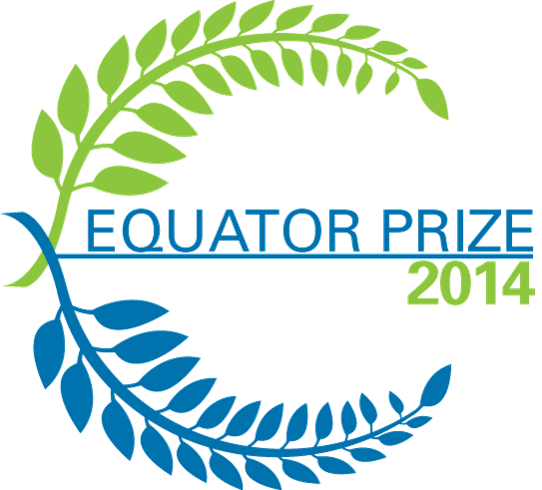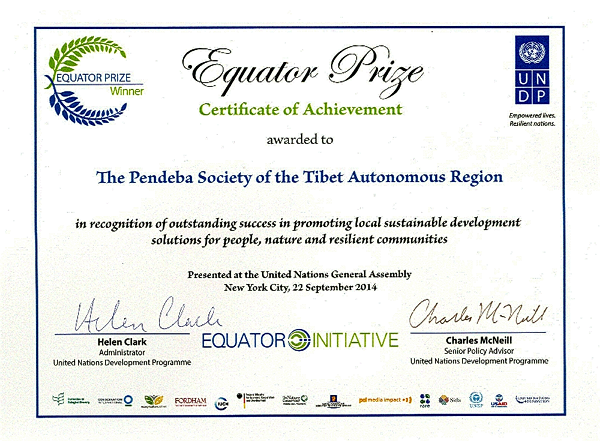
We are pleased to announce that the Pendeba Society of the Tibet Autonomous Region has been chosen as one of the winners of the Equator Prize 2014. The Equator Prize is awarded biennially to recognize and advance local sustainable development solutions for people, nature and resilient communities. As local and indigenous groups across the world chart a path towards sustainable development, the Equator Prize shines a spotlight on their efforts by honoring them on an international stage.
Following a global call for nominations, the Equator Initiative received a record-setting 1,234 nominations from 121 countries around the world. An extensive review process guided by the Prize’s Technical Advisory Committee of international experts was undertaken over the last several months, concluding with the announcement of the thirty-five winners.
 While diverse in their innovations and areas of work, each winner demonstrates community-based, grassroots action to address environment, poverty and climate change challenges head-on. Twenty-six winners including a representative of the Pendeba Society will be supported to attend a high-level awards ceremony at Lincoln Center in New York on Monday, September 22nd 2014 as a contribution to the UN Secretary-General’s Climate Summit.
While diverse in their innovations and areas of work, each winner demonstrates community-based, grassroots action to address environment, poverty and climate change challenges head-on. Twenty-six winners including a representative of the Pendeba Society will be supported to attend a high-level awards ceremony at Lincoln Center in New York on Monday, September 22nd 2014 as a contribution to the UN Secretary-General’s Climate Summit.
It is a great honor for the Pendeba Society as an Equator Prize 2014 winner, which shows a positive recognition and support of our work on the planet’s “Third Pole”. We will certainly keep up our good work. By this chance, we would also like to thank all those people who have consistently supported us and helped us grow. Tashi Telek!
More information about the the Equator Initiative:
The Equator Initiative brings together the United Nations, governments, civil society, businesses and grassroots organizations to recognize and advance local sustainable development solutions for people, nature and resilient communities. The Equator Initiative seeks to:
- Recognize the success of local and indigenous initiatives,
- Create opportunities and platforms to share knowledge and good practice,
- Inform policy to foster an enabling environment for local and indigenous community action, and
- Develop the capacity of local and indigenous initiatives to scale-up their impact.